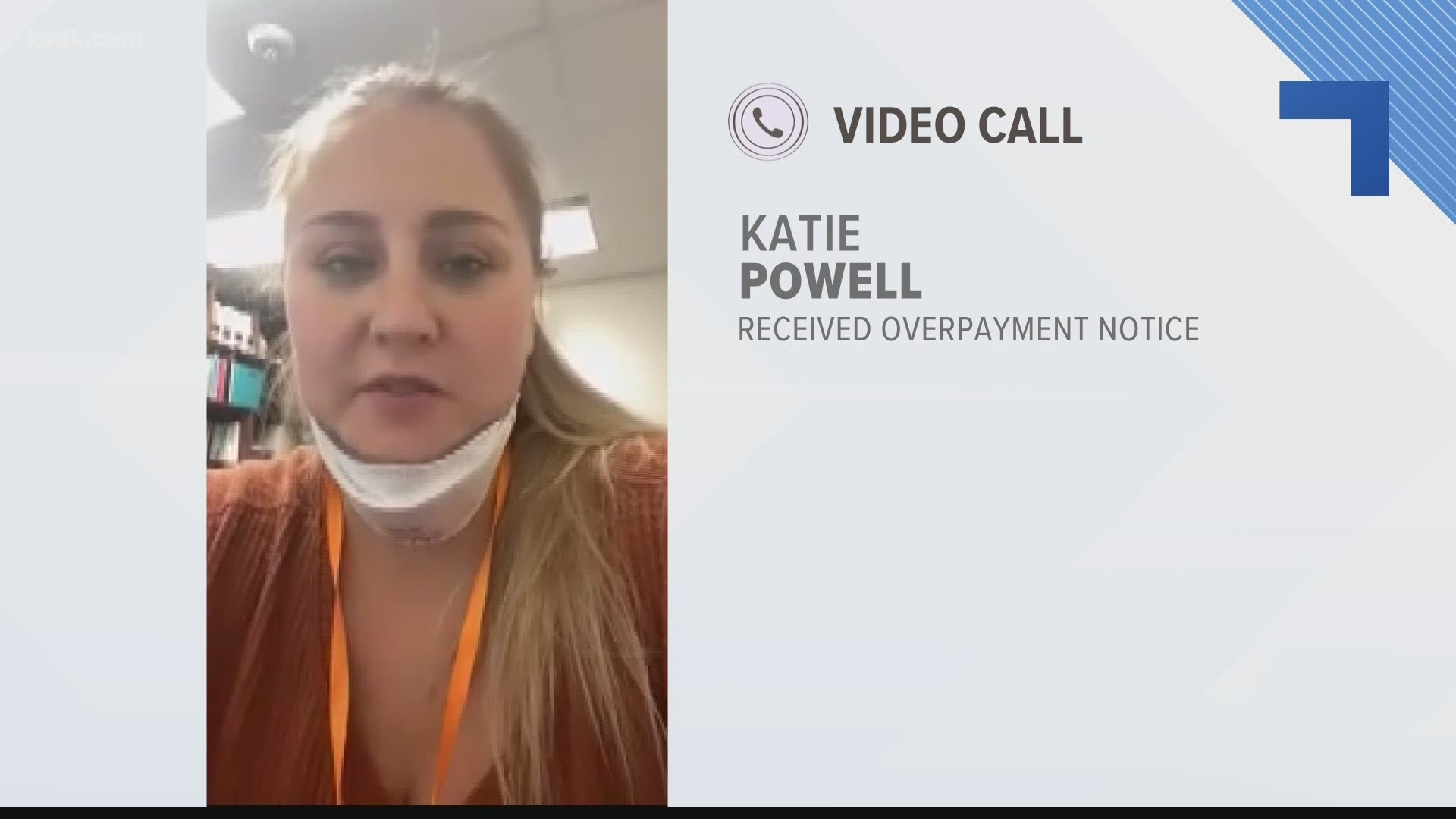JEFFERSON CITY, Mo. — Thousands of Missourians would be off the hook for repaying millions of dollars in federal unemployment benefits the state wrongly awarded them under a bill passed by the state House Thursday.
At issue are mistakes by the state's Labor Department, which doled out $146 million in unemployment aid to 46,000 Missourians who didn't qualify last year amid a crush of unemployment claims during the coronavirus pandemic.
Republican Gov. Mike Parson’s administration is trying to get those overpayments back.
But lawmakers have said many people who received the overpayments were struggling financially and already spent the money on rent, utilities and other necessities and face going into debt to repay the benefits.
The pending bill, passed 157-3, would waive the debts from any federal unemployment aid but would still require Missourians to repay the state for its portion of the benefits. People who fraudulently filed for unemployment would still have to repay the federal government under the bill.
Democrats pushed to waive the state portion of the overpayments, too. Democratic Rep. Peter Merideth, of St. Louis, said people who inadvertently received unemployment overpayments still will owe a lot of money to the state, even if the bill passes.
“They still have large bills that are going to be tough for them to pay that were not their fault,” Merideth said.
Parson on Thursday said he's now open to forgiving the federal overpayment debts but skeptical about “doing a blanket policy for everybody in that arena.” Still, he appeared supportive of what lawmakers have proposed.
“We don't want to punish law-abiding citizens,” Parson said.
The bill now goes to the state Senate, where Republican Senate leaders have also expressed support.
“It’s hard to ask people for money back after they’ve spent that,“ said Senate President Pro Tem Dave Schatz.
The legislation has an emergency clause, meaning it would take effect immediately upon the governor’s signature instead of the standard effective date of late August. But Schatz said the unemployment bill won’t necessarily be fast-tracked. He noted that most House bills have not yet referred to Senate committees for hearings.
___
Associated Press writer David A. Lieb contributed to this report from Jefferson City, Missouri.

